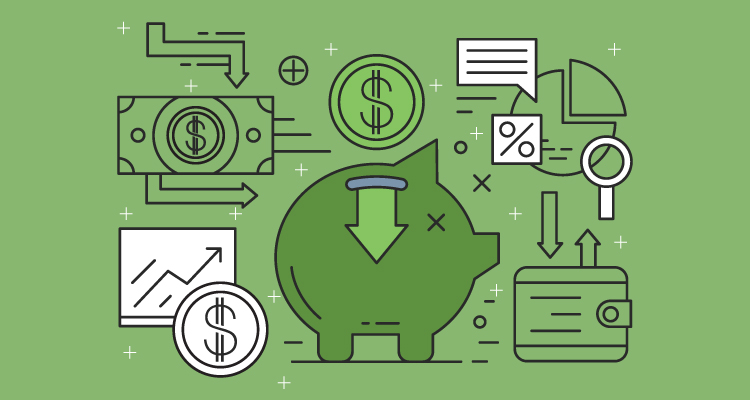It may sound old-fashioned in an age of online investing, but everybody needs to have uninvested cash – at least a little. But the problem is interest rates. They’re still at historically low levels in all the usual places, like local banks. That’s why we need to take a close look at the two best places to park your uninvested cash – both being Business savings accounts.
Table of Contents
ToggleWhy You Should Have Some Uninvested Cash at All Times
It’s become popular among investment advisors to recommend being “fully invested”. The concept that you maximize returns by having 100% of your money invested at all times.
That makes sense for wealthy people, who can access very low interest rate lines of credit to cover short-term cash needs. But for the average person, having at least some money in cash is the better strategy.
There are at least three reasons to have at least some uninvested cash at all times:
- Emergency savings. We can never know what life will throw at us. A major car repair, a roof that needs to be replaced, or even a temporary income disruption, can all strike with little notice. Having enough cash to cover living expenses for at least three months will allow you to cover these kinds of contingencies.
- Medium term financial needs. This covers a wide range of potential needs. Some examples that come to mind quickly are saving up the down payment for a new car, braces for one of your children, or a future renovation on part of your house. Funds for these projects should be held in safe, interest-bearing business savings accounts, so that the money will be ready for the intended purpose. Investing with the expectation of growing it also carries the risk of losing it.
- A cash reserve to take advantage of investment opportunities. Some of the best investment opportunities turn up unexpectedly. If you’re 100% invested, the only way you’ll be able to take advantage of the new investment opportunity is by liquidating a current investment. It’s much better to have some cash available so you can move quickly, and not need to disturb your portfolio.
Investment brokers often have money markets for uninvested cash. But their interest rates are similar to local banks.
Where NOT to Park Your Uninvested Cash
Many people continue to save uninvested cash in a business savings account at a local bank. But because of the historically low interest rates they pay, this is one of the worst strategies of all. That’s because with an inflation rate running roughly 2% per year, you’ll have to earn at least that much just to stay even.
The Weekly National Rates and Rate Caps – Weekly Update from the FDIC makes the point. It reports the national average interest rate on savings, interest checking accounts, money markets, and CDs of various terms available at local banks. It shows current returns of 0.10% on savings, or 0.19% on money markets. Those returns are dangerously close to nothing!
Fortunately, there are alternatives that can at least enable you to keep up with inflation.
High-Yield Online Money Market Accounts (A Business Savings Account)
Money market accounts are one of the best places to keep uninvested cash, because they’re totally liquid. You can access your money at any time. But as we just saw, rates being paid on local bank money markets are pathetically low.
The alternative is to go with high-yield online money market accounts. Online banks, like BBVA Compass, TIAA, Capital One and Sallie Mae pay interest rates well above 2%, which can even keep you a little bit ahead of inflation.
Other online banks, like CIT Bank, Discover Bank, ableBanking and First Internet Bank pay just below 2%. That may not keep you ahead of inflation, but it’s still roughly 10 times higher than the rates available on money market accounts through your local bank.
High-Yield Online Savings Accounts (Another Business Savings Account)
If you prefer a savings account – though they aren’t that much different than money market accounts these days – you can also get high interest rates from online banks on these accounts as well.
One of the very best high-yield savings accounts right now is CIT Bank’s Savings Builder account. With a minimum deposit of just $100, you can earn up to 2.40% APY.
That return typically requires a minimum investment of at least $25,000. However, the bank does offer a workaround. You can open an account with $100, and make monthly deposits of $100 or more, and be eligible for that rate of return.
Close behind CIT Bank is Ally Bank. They’re currently paying 2.20% APY on all balances. That’s more than 20 times the rate of return on the typical local bank savings accounts. And it’ll keep your savings ahead of inflation.
Don’t let the low interest rates being paid by local banks scare you away from holding some uninvested cash. Open either a money market account or a savings account with a high-yield online bank. Then you’ll have to kind of account that will make old-fashioned savings worth doing again.
















